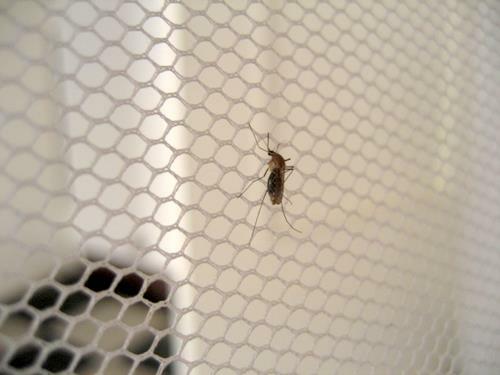
LSTM’s Director Professor Janet Hemingway, along with 14 other eminent researchers in the field of vector biology, have put together an editorial outlining the need for a more urgent and proactive approach to insecticide resistance, if the gains made in malaria prevention in the 21st century are not to be lost.
In an editorial in the journal The Lancet, Professor Hemingway and her colleagues, look at how the last 15 years of control measures and treatment have led to massive reductions in disease prevalence in Africa since 2000. However from the very beginning, the article warns of the looming public health catastrophe should the burden of resistance to insecticide continue to express.
Following the first indication of malaria parasites becoming resistant to drugs, the World Health Organization (WHO) recommended artemisinin combination as the front line treatment for malaria in order to minimise treatment failure. However control remains reliant mainly on one chemical class of insecticides, the pyrethroids, which is the only insecticide used in long lasting insecticide-treated bednets and from 2013 became used in nearly two thirds of all indoor residual spraying (IRS) programmes. The authors point out that this has meant that for more than a decade mosquito vectors of malaria have been targeted with a monotherapy, and inevitably resistance has been selected and pyrethroids are no longer capable of killing mosquitoes in some parts of Africa.
The current situation in Africa has, in part, been caused due to complacency when resistance first appeared to this class of insecticide in the 1970s, mainly due to pyrethroids being used to protect crops from insect damage. However this original resistance mechanism was caused by a single site mutation, now a more potent form of resistance has seen resilient populations surviving up to 1000 times the concentration of insecticide that kills susceptible mosquitoes. In programmes where IRS have switched to alternative insecticides there has been a substantial fall in cases of malaria, but currently there is no alternative to pyrethroids for the use in bednets and any replacement, could still be five years away from being available.
The 2012 WHO Global Plan for Insecticide Resistance Management in malaria vectors has raised awareness of the issue and put a framework in place to manage it. However there are major operational challenges to implementing many of the recommendations. The authors ask if, with there being no current alternative to pyrethroids, at what point should existing bednets stop being rolled out, when is it better to concentrate on the barrier protection provided by more durable nets.
Ultimately the authors, which also include LSTM’s Professor Hilary Ranson and Dr Nick Hamon, the CEO of the Innovative Vector Control Consortium (IVCC), point out the successful implementation of the WHO global plan requires the development and operational deployment of new insecticides. IVCC is currently working with industry to develop novel public health-specific insecticides and, with several of these urgently needed products currently in the pipeline, there is a call that a concerted effort be made to streamline the developmental, regulatory, and WHO recommendation pathways.
Professor Hemingway is keen that researchers learn from lessons of the past: “Countries should be helped to develop rational malaria prevention strategies in order to prolong the efficacy of current vector control methods, ensuring that their efforts are adequately resourced. In terms of new products, it is vital that we do all that we can to overcome hurdles that are preventing them being brought to market now, and introduce them in a format that will ensure they are not rapidly compromised by resistance. All key stakeholders must be committed to playing their parts, or much of the hard won progress in reducing malaria transmission will be lost.”
Read the full article here.